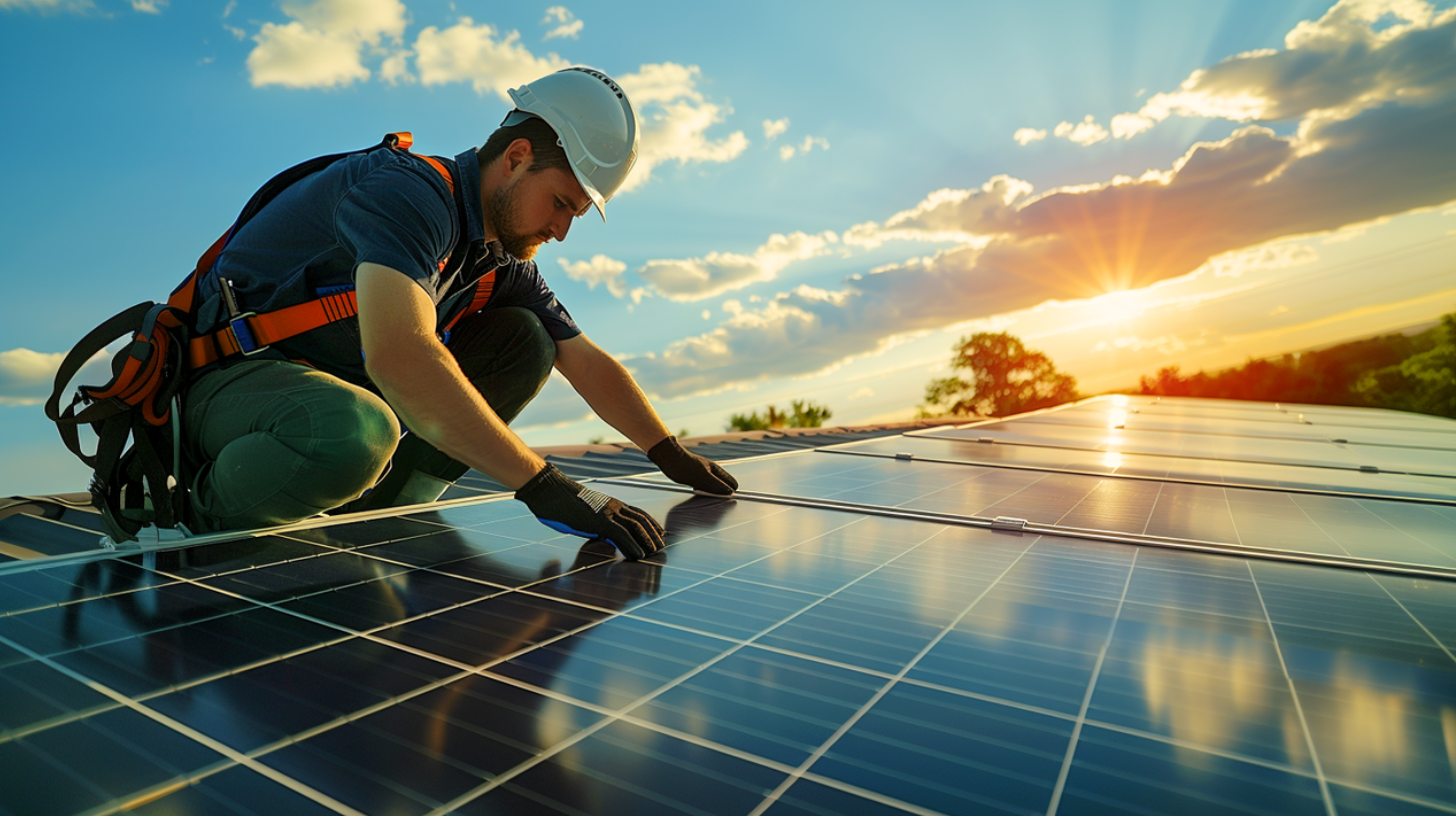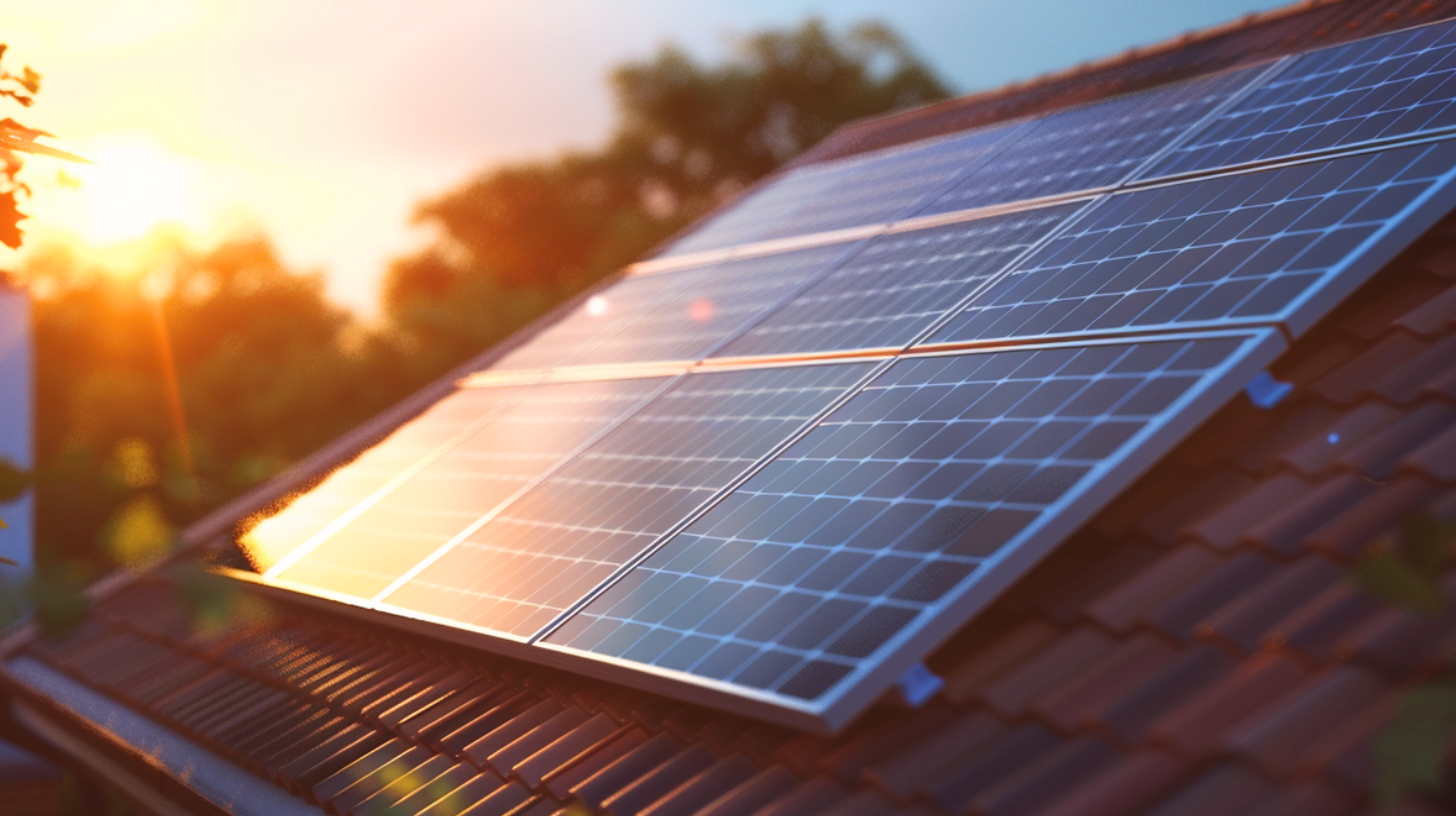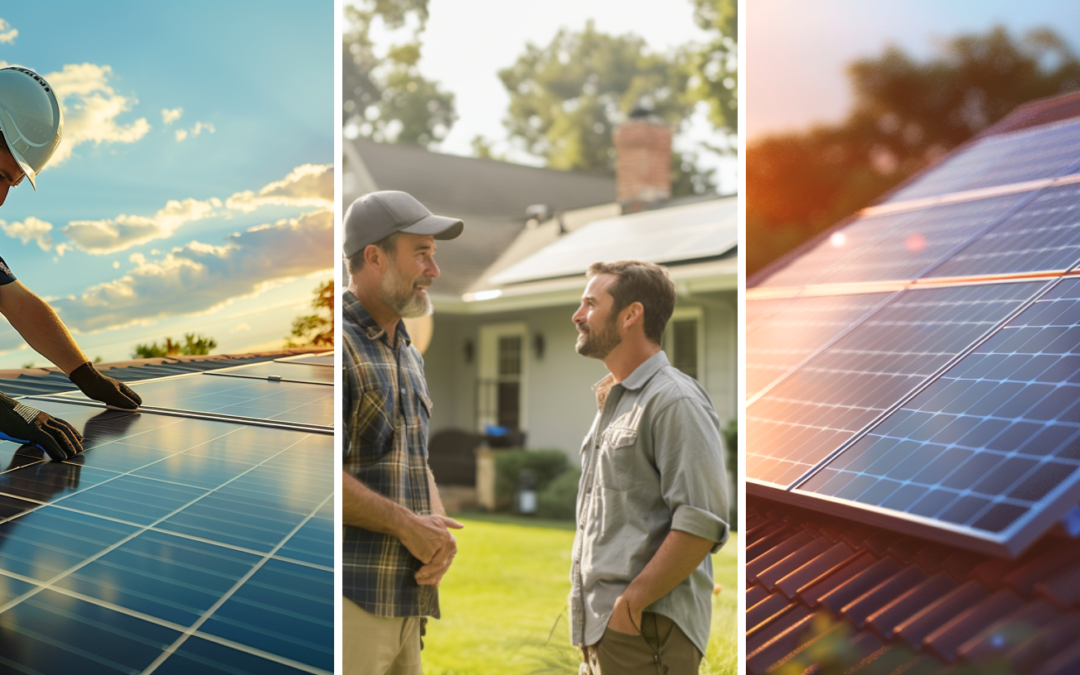Exploring the Basics of Solar Roofing
One key benefit of solar roofing is its ability to generate clean energy. Solar panels on the roof convert sunlight into electricity by harnessing the sun’s power. This means homeowners and building owners can reduce their reliance on fossil fuels and contribute to a greener and more sustainable future. Staying informed about the latest advancements and trends in the solar industry can help individuals make informed decisions about their energy solutions.
In addition to generating electricity, solar roofing offers several other advantages. It is highly durable and provides all-weather protection for the property. The solar panels or tiles are designed to withstand harsh weather conditions such as heavy rain, snow, and even hail. This ensures the roof remains intact and generates energy even in challenging climates.
Solar roofing is a game-changer in the solar industry. It offers clean energy, durability, all-weather protection, and compatibility with backup energy storage solutions. It is an excellent choice for homeowners and building owners looking to reduce their environmental footprint while experiencing the benefits of renewable energy.

Solar Roofing - Why Renewable Energy Sources Matter - Sky Roofing Construction & Remodeling
Why Renewable Energy Sources Matter
Roof surfaces present a vast untapped potential for harvesting renewable energy, particularly solar power. Installing solar panels on roofs, homes, and buildings can generate clean electricity. This helps reduce reliance on fossil fuels and lowers energy bills, benefiting the environment and the homeowner’s wallet.
However, it is crucial to consider the preservation of historical roofscapes and townscapes when implementing solar roofing solutions. Maintaining these structures’ aesthetic design and historical integrity is essential for cultural and historical preservation. By carefully integrating solar panels into roofing designs, we can seamlessly blend modern renewable energy technology with architectural styles, ensuring a harmonious balance between functionality and aesthetics.
Reasons to Consider Solar Roofing

Solar Roofing - Reasons to Consider Solar Roofing - Sky Roofing Construction & Remodeling
Energy Savings
Solar roofs offer various benefits that contribute to energy savings. Firstly, solar panels on the roof can convert sunlight into usable energy, powering the home’s electrical needs. The surplus energy can be stored in batteries for cloudy days or sold back to the grid, potentially offsetting energy costs.
When comparing solar options, energy usage is an essential factor to consider. Homeowners should determine their average energy consumption to gauge the system size needed to meet their requirements. Installing solar shingles on a specific roof area can enhance energy efficiency. Homeowners can maximize energy production and savings by strategically placing them on the sunniest parts.
Investing in solar roofing reduces energy bills and has long-term advantages. Home and building owners can use government incentives and rebates, further accelerating their energy savings. Additionally, solar roofs increase property values and provide a sustainable energy solution that benefits homeowners and the environment.
Reduction in Carbon Footprint
Renovating 250 million homes by 2050 is crucial to meeting the European Union’s climate targets. This renovation initiative not only addresses energy efficiency but also has the potential to trigger multiple climate tipping points. These renovations can drastically reduce energy consumption and greenhouse gas emissions by improving insulation, employing efficient heating and cooling systems, and integrating solar roofs.
By reducing the carbon footprint in the building sector through the implementation of energy-efficient technologies and renewable energy sources like solar roofs, we can significantly impact the fight against climate change. We must embrace these solutions to ensure a greener, more sustainable future for generations.
Cost-effectiveness Over Time
The project’s cost-effectiveness is evident in ongoing maintenance costs. Solar roofing requires minimal maintenance, leading to reduced expenses over the installation’s lifespan. Unlike traditional roofing, which may require frequent repairs or replacements, solar roofing often comes with lengthy warranties and is designed to withstand harsh weather conditions.
Moreover, potential savings are a significant factor in the cost-effectiveness equation. Solar roofing allows for clean energy generation, significantly reducing or eliminating electricity bills. Excess energy can be fed back into the grid with net metering, resulting in credits or cash reimbursements. Additionally, federal tax credits for solar incentives can substantially lower the initial investment, making solar roofing even more financially appealing.
Analyzing initial expenses, ongoing maintenance costs, and potential savings reveals the cost-effectiveness of solar roofing. Investing in solar roofing provides financial and environmental benefits, making it a wise choice for discerning homeowners and building owners.
Potential Increase in Home Value
One primary reason solar roofing increases home value is that it provides homeowners with a long-term and cost-effective solution to producing renewable energy. With rising energy costs and increased awareness of carbon footprints, homebuyers are actively seeking properties with eco-friendly features like solar panels. Installing solar roofing shows potential buyers that your home is efficient and forward-thinking.
Additionally, solar roofing offers financial benefits that are attractive to homebuyers. It allows homeowners to generate electricity, potentially reducing or eliminating monthly energy bills. This can be an appealing feature for potential buyers looking to save money on utility costs.
Furthermore, investing in solar roofing demonstrates a commitment to sustainability and environmental responsibility, which can help distinguish your property in the real estate market. Many homebuyers are willing to pay a premium for homes with sustainable features like solar panels.
Solar roofing is an investment that goes beyond energy savings. It increases home value through its economic and environmental benefits, making it a wise choice for homeowners who want to make their property more attractive and valuable.
Different Types of Solar Roofing
Selecting the right solar roofing option is vital to ensure maximum energy production, cost-effectiveness, and durability. Factors such as roof orientation, available roof space, budget, and personal preferences must be considered. Consulting with a professional roofing contractor can help you determine the most suitable type of solar roofing for your specific needs and ensure that you maximize the benefits of solar energy for your home or building.

Solar Roofing - Different Types of Solar Roofing - Sky Roofing Construction & Remodeling
Solar Shingles
One key benefit is solar shingles’ seamless integration into the roof’s overall appearance. They simulate standard shingles, preventing traditional solar panels’ sometimes bulky and noticeable appearance. This makes solar shingles a popular choice among home and building owners looking to maintain the visual appeal of their properties.
The installation process for solar shingles is reasonably straightforward. They are typically installed by professional roofing contractors who work with these specialized shingles. Once installed, they seamlessly blend into the existing roof structure, providing a cohesive and sleek look.
Solar shingles are generally more expensive than traditional solar panels due to their specialized design and installation requirements. Additionally, their availability may vary depending on the region and the specific manufacturers that produce them.
Solar Panels
One of the main advantages of solar panels is their versatility in installation options. Unlike solar shingles, primarily designed for roof integration, solar panels can be installed on the ground or in various locations, allowing homeowners more flexibility in finding the optimum position to capture sunlight. This versatility is particularly beneficial for properties with limited roof space or shading issues.
In addition to their installation options, solar panels are also more affordable compared to solar shingles. The cost of solar panel systems has significantly decreased, making them more accessible to a wider range of homeowners. This affordability factor has contributed to the rising popularity of solar panels as a viable renewable energy solution.
Furthermore, solar panels give homeowners more control over their energy usage and lower electrical bills. By generating electricity from the sun, solar panels allow homeowners to reduce their dependency on the traditional power grid. This helps curb electricity costs and gives individuals the satisfaction of contributing to a more sustainable and eco-friendly future.
Solar Tiles
One of solar tiles’ key features and benefits is their seamless integration into the roofline. They are designed to mimic the look of traditional roof tiles, ensuring a cohesive and attractive appearance. This integration makes them ideal for homeowners who want to harness solar energy’s power without sacrificing their home’s beauty.
Solar tiles are made from a combination of durable materials, including glass and steel. This ensures their longevity and ability to withstand harsh weather conditions. The glass used in solar tiles is specially designed to maximize sunlight absorption, while the steel provides structural support and protection against wear and tear.
The benefits of solar tiles go beyond their aesthetic appeal and durability. By harnessing the sun’s power, they can significantly reduce your reliance on traditional energy sources, resulting in lower electricity bills and a reduced environmental impact. Additionally, solar tiles can generate electricity even on cloudy days, ensuring a consistent and reliable supply of renewable energy.
Pros and Cons of Solar Roofing
Additionally, solar roofing can lead to significant energy savings. Generating on-site electricity allows homeowners and building owners to consume less traditional grid-based electricity, reducing utility bills. This can lead to long-term cost savings and a return on investment.
Another advantage of solar roofing is the range of aesthetic options available. With technological advancements, solar panels can be seamlessly integrated into roofing materials, allowing for a more visually appealing and cohesive look. Homeowners no longer need to compromise on style for the sake of sustainability.
However, there are also some disadvantages to consider when contemplating solar roofing. The initial solar installation cost can be a barrier for many, as it typically involves a significant upfront investment. Although the long-term cost savings can offset this, solar roofing may take time for everyone to become affordable.
Additionally, solar roofing’s energy efficiency is partially dependent on its orientation. Roofs that face south or southwest tend to yield better energy production results. Therefore, solar roofing may be less effective in maximizing energy savings for buildings with less favorable roof orientations.
Explore Your Solar Roofing Options with Sky Roofing Construction & Remodeling
Solar roofing presents a compelling opportunity to embrace sustainable energy solutions while reducing your carbon footprint. Solar roofing offers practical and aesthetic benefits, whether motivated by environmental concerns or seeking long-term cost savings. To explore how solar roofing can enhance your home or building, contact Sky Roofing Construction & Remodeling (https://skyroofingconstructiontx.com/) at (210) 942-9797 to schedule a roofing consultation. Take the first step towards a greener future and discover the advantages of integrating solar technology into your property.
Willis Vachon is a seasoned contributing writer for Sky Roofing Construction & Remodeling, specializing in the technical and safety aspects of roofing construction. With a keen eye for detail and a passion for ensuring quality and safety in every project, Willis provides valuable insights that help both professionals and homeowners make informed decisions about their roofing needs.

